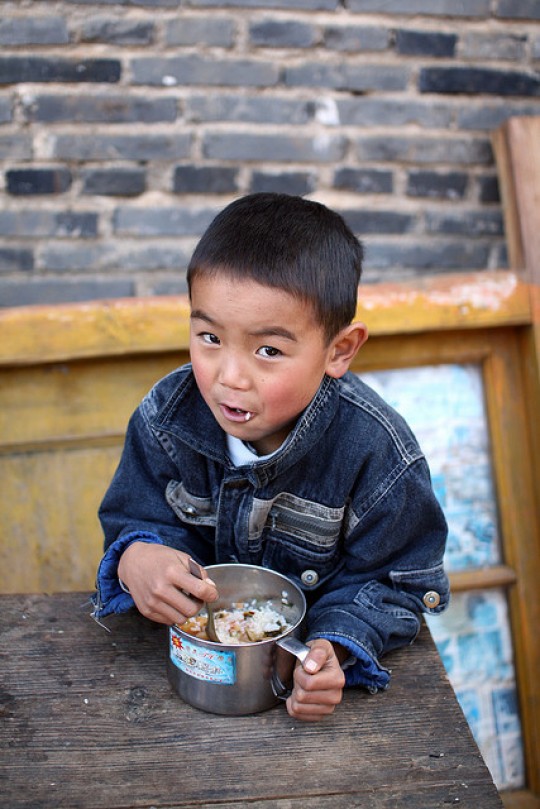Better school lunches – in China
Better school lunches – in China
I’m a few days late to this, but I still think it’s worth commenting on a story from Stanford’s Freeman Spogli Institute for International Studies about the use of research by economist Scott Rozelle, PhD, to improve school lunches in China.
In a series of studies conducted in 2008 and 2009, Rozelle’s research team found that nearly 40 percent of Chinese primary-school children suffered iron-deficiency anemia — no surprise given that their diets consisted mostly of rice and noodles, with very few servings of the iron-rich veggies (think spinach or broccoli) or red meat that could have alleviated the problem. The anemic children had worse school performance than non-anemic kids, a problem that could have significant detrimental effects for China’s economic modernization:
“For 5,000 years it was OK to be anemic if you’re never going to leave the farm,” said Rozelle… who is still experimenting with ways to improve children’s health in rural China and get the government to adopt the most effective methods.
“But we’re looking 20 years into the future where there are much fewer farms and you need at least a high school education to make a living in the city,” Rozelle said. “If you are sick with anemia, it is going to affect your cognitive ability, educational performance and ultimately your chances of going on in school.”
The problems with school performance were reversed when children received better diets and iron supplements, the Stanford researchers showed. After assessing Rozelle’s work, the Chinese government has pledged $2.5 billion a year for the next nine years to make elementary and middle-school lunches more nutritious. Wow!
The payoff should be significant:
A national policy aimed at improving nutrition and curbing anemia helps ensure that China maintains its foothold in the world’s economy and grow in a more stable, equitable way, Rozelle said.
“The social return is huge,” Rozelle said. “These kids will be able to do better in school, work harder and sustain China’s growth.”
As much as it warms my nutritionist’s heart to hear about this research being translated into beneficial action for millions of Chinese children, it also refreshes my feeling of disappointment about last week’s news that the U.S. Congress has bowed to food-industry pressure to avoid adopting the science-based recommendations from the Institute of Medicine for how to improve school lunches in the United States. (Check out Grist’s great summary of the history of U.S. wrangling over better school lunches – which, ironically, extends several years back before Rozelle’s iron-deficiency work was first published.)
True, U.S. school lunches, as dismal as they are, are still far ahead of an all-rice-and-noodle diet, and impoverished American children tend not to have anemia. But poor U.S. kids do disproportionately suffer from childhood obesity, which, like anemia, can have detrimental, lifelong consequences. In other words, the importance of giving kids equitable access to a healthy diet that will allow them to grow, learn and pursue higher education is every bit as essential here as in China.
By Erin Digitale
Stanford University Medical Center
Photo by david_hwang
###
* Stanford University Medical Center integrates research, medical education and patient care at its three institutions – Stanford University School of Medicine, Stanford Hospital & Clinics and Lucile Packard Children’s Hospital.
** The above story is adapted from materials provided by Stanford University School of Medicine
________________________________________________________________





















